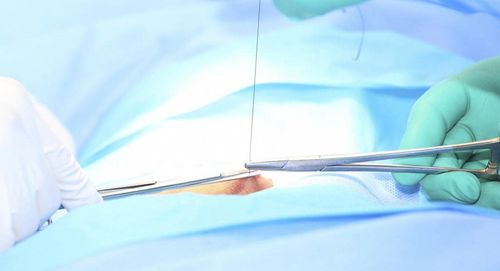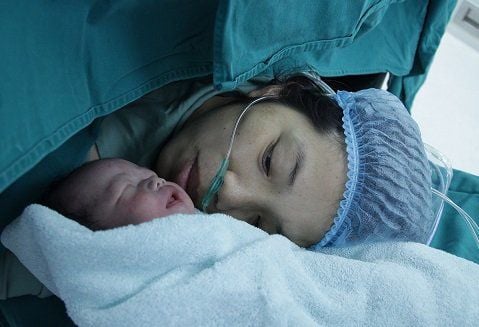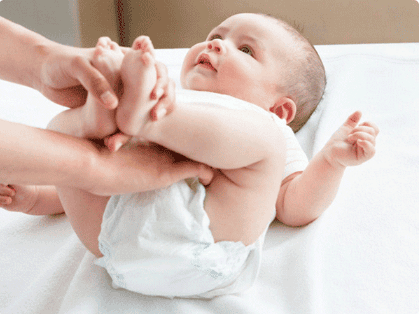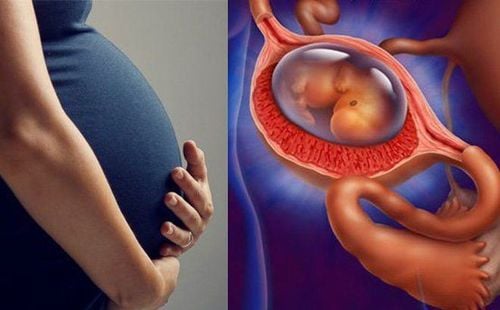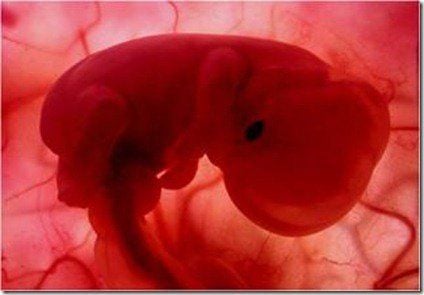This is an automatically translated article.
The article was professionally consulted by Dr. Nguyen Anh Tu - Doctor of Obstetric Ultrasound - Prenatal Diagnosis - Obstetrics Department - Vinmec Hai Phong International General Hospital.The process of formation and development of the fetus is still a mystery for pregnant women, especially first-time mothers. Many mothers will have feelings of nervousness and anxiety, but will be mixed with excitement when the baby in the womb is developing day by day.
1. First trimester of pregnancy
During the first trimester, your baby mainly grows from a very small blastocyst into a fetus that weighs about 14. Cells and some important internal organs start to work. Specifically as follows:3rd week The fetus is now just a round blastocyst like a ball. Despite their very small size, the cells present in the embryo already contain a full set of DNA inherited from the parents. They help determine your baby's gender, eye color, and other characteristics from the very beginning.
Week 4 The set of cells above has officially become an embryo and is about the size of a poppy seed. In the next 6 weeks, the development of fetal organs will begin to take place, some parts even come into operation quite early.
5-6 weeks The embryo's tiny heart begins to beat at twice the rate of an adult heart. Facial features, such as eyes and nostrils, are slowly taking shape. In addition, some small shoots also appear to prepare to develop into arms and legs. However, the whole body of the baby is now only the size of a sesame seed.
8 Weeks The embryo now has a little finger, nose and upper lip, while the legs continue to grow. At this stage, your baby can move quite a lot, although you can't feel it yet. The embryo is only about 1.5cm long.
9 Weeks Baby's eyes have developed but eyelids are still closed. The "tail" of the embryo has been lost, causing the baby to begin to look more like a human.
10th week The embryo has become a fetus. The development of the baby's organs, including vital organs such as the kidneys, intestines, brain and liver - is starting to work. Tiny fingernails and toenails are also gradually forming.
11-12 weeks The fetus is almost fully formed. Your baby's bones are starting to harden, and her external genitalia are also developing. At this point, the fetus may know hiccups, but it is too early for the mother to feel it. However, the mother can hear the baby's heartbeat during the prenatal check-up, the baby is now just over 5cm long.
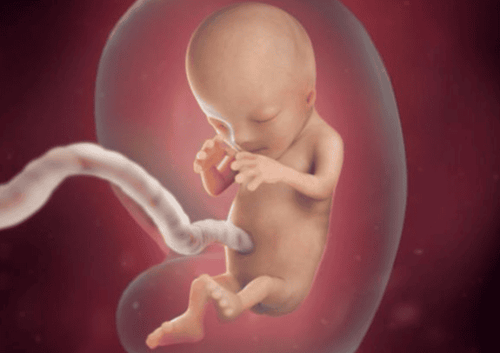
2. Second trimester
The development of fetal organs in the next 3 months of pregnancy is prominent in the first movements felt by parents. In addition, the baby's hearing, taste, vision and reflexes are constantly improving in the womb.14-15 weeks Your baby's kidneys are producing urine and will excrete it into the amniotic fluid. Fetal facial expressions can change with emotions, many babies soon learn to suck their thumbs. In addition, the baby can feel light coming from outside of the mother's womb even though his eyelids are still closed.
16th week From this point until the 20th week of pregnancy, the baby's sex can be detected in advance through ultrasound or by doing some specific tests.
18 Weeks You will feel your baby move from now on or in the next few weeks. However, the father or other relatives will have to wait a while longer to feel the fetal movement from the outside.
19th week The fetus can hear the mother's heartbeat and also outside sounds, such as the father's voice. Your baby's skin is quite wrinkled and covered with a protective layer of wax. The fetus measures about 15cm from head to toe.
23 Weeks Baby begins to have a sense of movement, in other words, the fetus will recognize if the mother is dancing or exercising. Your baby's hearing continues to improve. Sometimes the mother can see the baby squirming through the surface of the abdomen.
24th week Fetal organ development takes place in taste buds and hair. Your baby's brain is also developing very quickly. The size of the fetus is now equivalent to an adult foot.
27 Weeks Baby's lungs are still developing but not fully functional yet. Over the next few weeks, your baby will continue to "practice" for life outside by inhaling and exhaling through the amniotic fluid; sleep and wake up at regular intervals; open and close your eyes; as well as performing thumb sucking to get ready for breast milk when it's born.
3. The last three months of pregnancy
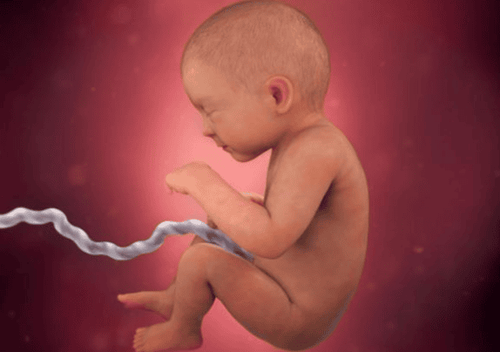
28 weeks The fetus weighs about 1kg and is about 38cm long from the top of the head to the heel. Baby has grown eyelashes and vision is improving. Billions of neurons are constantly developing in your baby's brain, even occurring during sleep cycles.
32 Week From head to toe, your baby is nearly 43cm long and weighs about 1.7kg. Tiny fingernails and toenails also gradually grow out. The development of the fetal organs as well as the whole body begins to become fuller in preparation for the day of birth.
34 Weeks Your baby's lungs and central nervous system are continuing to mature. The fetal skin at this time also becomes soft and smooth, the body is more and more round and chubby with a length of nearly 46cm.
37 weeks If a baby is born at this stage, it is still considered premature. Although babies born at 37 weeks preterm are still likely to do well, it would be ideal for them to stay in the womb for a few more weeks. This is the time it takes for the brain and lungs to fully mature.
39-40 weeks The baby is now considered full term and ready for life outside the womb. The average length is about 51cm.
41-42 weeks If the due date has passed, but the fetus is still not born, it is considered a late birth. Doctors will monitor the baby's health through a number of tests to evaluate the fetal heart rate or do a biological test. To limit complications, the obstetrician will probably discuss with the pregnant woman about methods of induction in the next 1-2 weeks.
In general, the development of fetal organs takes place at a fairly rapid pace but is also very complex. While the liver is the largest internal organ, the placenta holds the most unique role, helping most organs to perform separate functions throughout pregnancy. The adverse environment in the mother's uterus has the potential to negatively affect the development of the fetal organs. Therefore, regular antenatal check-ups will help assess the baby's growth status and detect early signs of a problem, thereby providing timely solutions and interventions.
Vinmec International General Hospital offers a Package Maternity Care Program for pregnant women right from the first months of pregnancy with a full range of antenatal care visits, periodical 3D and 4D ultrasounds and routine tests to ensure that the mother is healthy and the fetus is developing comprehensively. In addition to regular check-ups, pregnant women will also be advised on nutrition and exercise so that the mother can gain weight reasonably while the fetus still absorbs nutrients well.
Doctor Nguyen Anh Tu has 6 years of experience in obstetrics and gynecology ultrasound, specially researched and trained in pregnancy ultrasound - prenatal diagnosis. Dr. Tu has completed courses on ultrasound - prenatal diagnosis of the FMF International Fetal Medicine Association; trained in consulting and implementing diagnostic intervention techniques in fetal medicine and participated in many specialized conferences and seminars on Fetal Medicine. Currently, he is a doctor at the Department of Obstetrics and Gynecology, Vinmec Hai Phong International General Hospital.
Article referenced source: babycenter.com; sciencedirect.com
Please dial HOTLINE for more information or register for an appointment HERE. Download MyVinmec app to make appointments faster and to manage your bookings easily.





